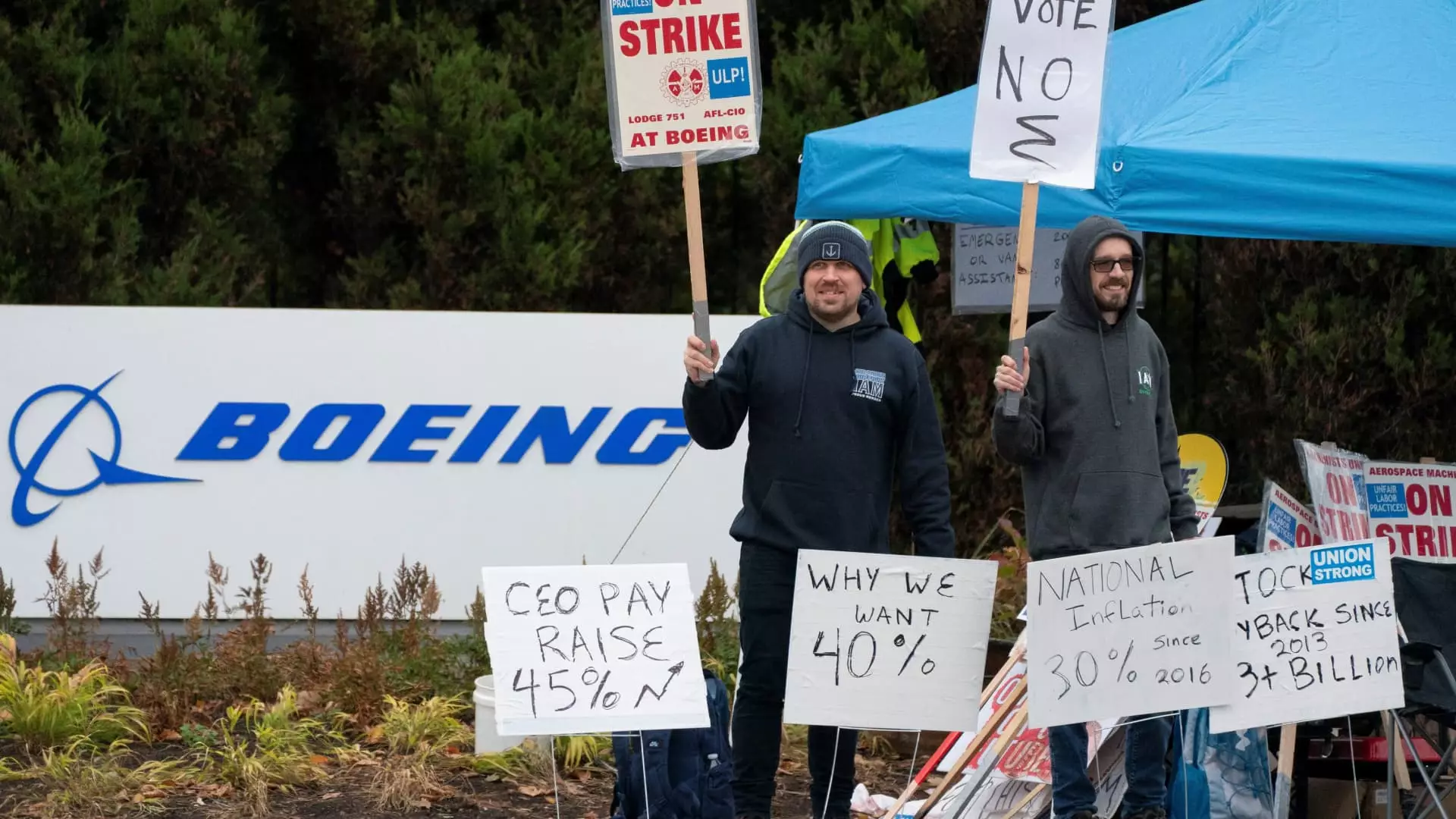Boeing Machinists Strike: A Turning Point for Labor Relations and Corporate Stability

After a grueling seven-week strike, Boeing and the International Association of Machinists and Aerospace Workers (IAMAW) have arrived at a critical juncture with the introduction of a newly negotiated contract. This contract, representing a considerable wage increase and additional bonuses, serves as a potential resolution to a labor dispute that has severely affected Boeing’s operations and financial health. By urging union members to approve this offer, the IAMAW emphasizes the importance of returning to work, especially as Boeing confronts mounting losses that threaten its long-term viability.
Boeing, a cornerstone of American aerospace manufacturing, faces significant challenges. The company’s machinists, numbering over 32,000, initiated a strike on September 13 after rejecting a tentative agreement. The ongoing labor disruption has not only impacted production schedules but has also caused ripples throughout the wider economy, particularly in the aerospace sector. According to recent reports, the strike has noticeably affected U.S. employment figures, with implications reaching as high as the upcoming presidential elections.
The newly proposed contract features a notable increase in wages—38% over the next four years, culminating in an average machinist salary of $119,309. This escalation, surpassing the previous offer of 35%, represents a significant win for workers who have been advocating for better compensation in light of rising living costs in the Seattle area. Additionally, the union has successfully negotiated a one-time ratification bonus, offering employees either $12,000 or a combination of $7,000 cash and a $5,000 contribution to their 401(k) plans.
These financial incentives are critical in the context of rising living costs driven by tech giants like Amazon and Microsoft competing for talent in the region. The IAMAW has asserted that prolonging the strike risks receiving a “regressive” offer in the future, stressing the urgency for members to accept this deal. A pragmatic approach is necessary for both sides: union leaders realize the importance of striking a balance between achieving fair compensation and ensuring corporate stability.
The negotiations have not occurred in a vacuum. The Biden administration’s involvement, through the acting Labor Secretary, underscores the strike’s potential impact on the broader economy. President Biden’s support for the union, alongside his acknowledgment of the sacrifices made by Boeing machinists, reflects a trend toward greater governmental concern over labor rights in a rapidly evolving economic landscape. This situation reflects a growing recognition of the importance of labor movements while companies struggle with shifting production strategies and financial pressures.
The ongoing strike has exacerbated Boeing’s existing difficulties, including more than $6 billion in losses last quarter due to production downtime and quality control issues, compounded by significant operational challenges like the recent safety concerns linked to the 737 Max. As a result, the strategic decisions made now could have lingering repercussions for the company’s ability to stabilize and succeed in the future.
As Boeing’s leadership looks to rebuild relationships with its workforce, CEO Kelly Ortberg’s statements signal a commitment to not only resolving the current labor dispute but also fostering a culture of collaboration that can drive future success. He emphasizes the need for unity within the organization to deliver high-quality products to a market eager for innovation.
In moving forward, it is crucial for Boeing to demonstrate its dedication to the labor force, particularly as public scrutiny on corporate practices intensifies. The outcome of this vote, and the subsequent return of workers to production lines, will not only determine the immediate future for Boeing employees but could also mark a significant turning point in the evolving landscape of labor relations across America.
In an environment where workers are increasingly asserting their rights and demanding fair compensation, the implications of this strike and its resolution may resonate far beyond Boeing. The labor movement, energized by these negotiations, could spark a renewed focus on worker rights in other industries as the dynamics of work and compensation continue to evolve in a post-pandemic world.





